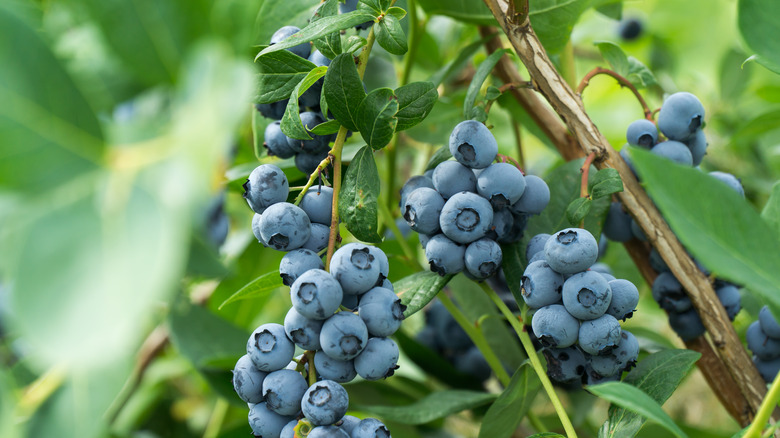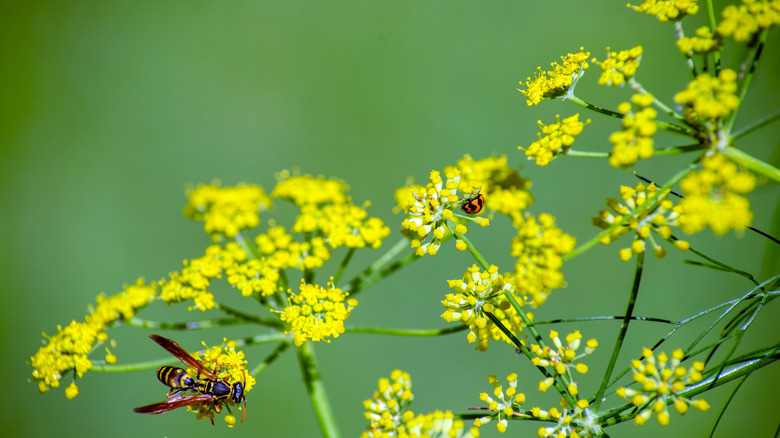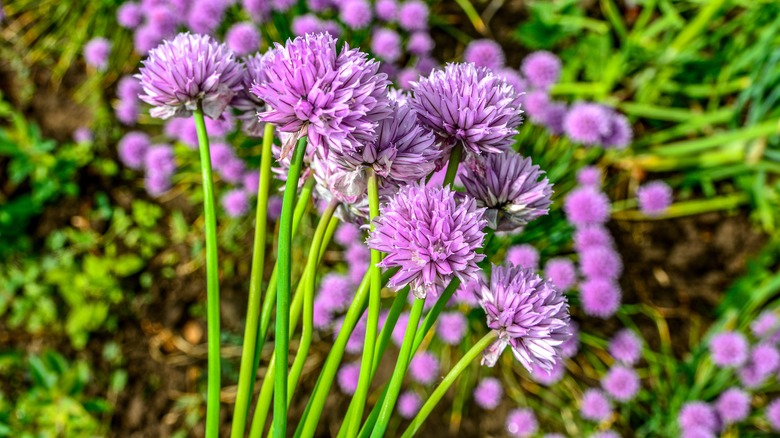The Herbs That Will Make Your Blueberry Bush Thrive In The Garden
Finding the perfect site for your blueberry bushes is crucial to make sure you can have those delicious berries all season long. Though the plants are pretty small, they can still take up much-needed space in a backyard. Knowing what companion plants will benefit your blueberries will allow you to make the most of your space and possibly even have better berries at harvest time because of it.
The first step to finding the right companions is knowing how to grow blueberries. They need plenty of direct sunlight, a pH level of 4.0 to 5.5, and about an inch of water each week. The herbs you choose to go next to your bushes need to grow well in this environment or at least tolerate the conditions. Luckily, there are plenty of herbs you can sneak in among the berry bushes to make sure your garden is thriving at its maximum potential.
Herbs that bring in pollinators
Blueberry bushes need pollinators to grow fruit, so having plenty of blooms around will set your plants up for success. Borage is a beautiful edible flower and herb that will not only match your blueberries but will draw in pollinators and is especially attractive to bees. Basil and thyme will act as a living mulch early in the season. They'll help prevent weeds and keep moisture in the soil, and later in the season, they'll produce plenty of flowers for pollinators. Dill and parsley will attract ladybugs and are host plants for butterflies.
Pollinators aren't just good for pollinating. Many of them are predatory and devour your enemies, giving you an all-natural form of pest control. The ladybugs that dill attracts go after aphids that can feed on your blueberry bushes. Parasitic wasps brought in will lay eggs on caterpillars that eat up blueberry foliage and eventually kill them.
Herbs that deter pests
Herbs that bring in pest-fighting pollinators can do wonders for your blueberry bushes, but they can also deter pests themselves. Chives repel Japanese beetles and aphids, catnip repels flea beetles, and sage and thyme repel moths. When placing these herbs near your blueberry bushes, be sure not to crowd them too much so every plant can receive the sunlight and airflow they need to thrive. Sage, thyme, and basil all repel flies, which is super important since their larvae attack various parts of the bushes. Blueberry maggots eat the fruit, and gall midges eat the leaves and shoots, making it difficult for the plant to develop new berries or finish ripening existing ones.
Combining herbs that deter pests with those that attract pollinators will create a diverse pest control plan for every stage. It can help you minimize the need for chemical controls, and you'll also get to benefit your local ecosystem. Blueberries can grow well next to many herbs, giving you plenty of options to work within your garden.


